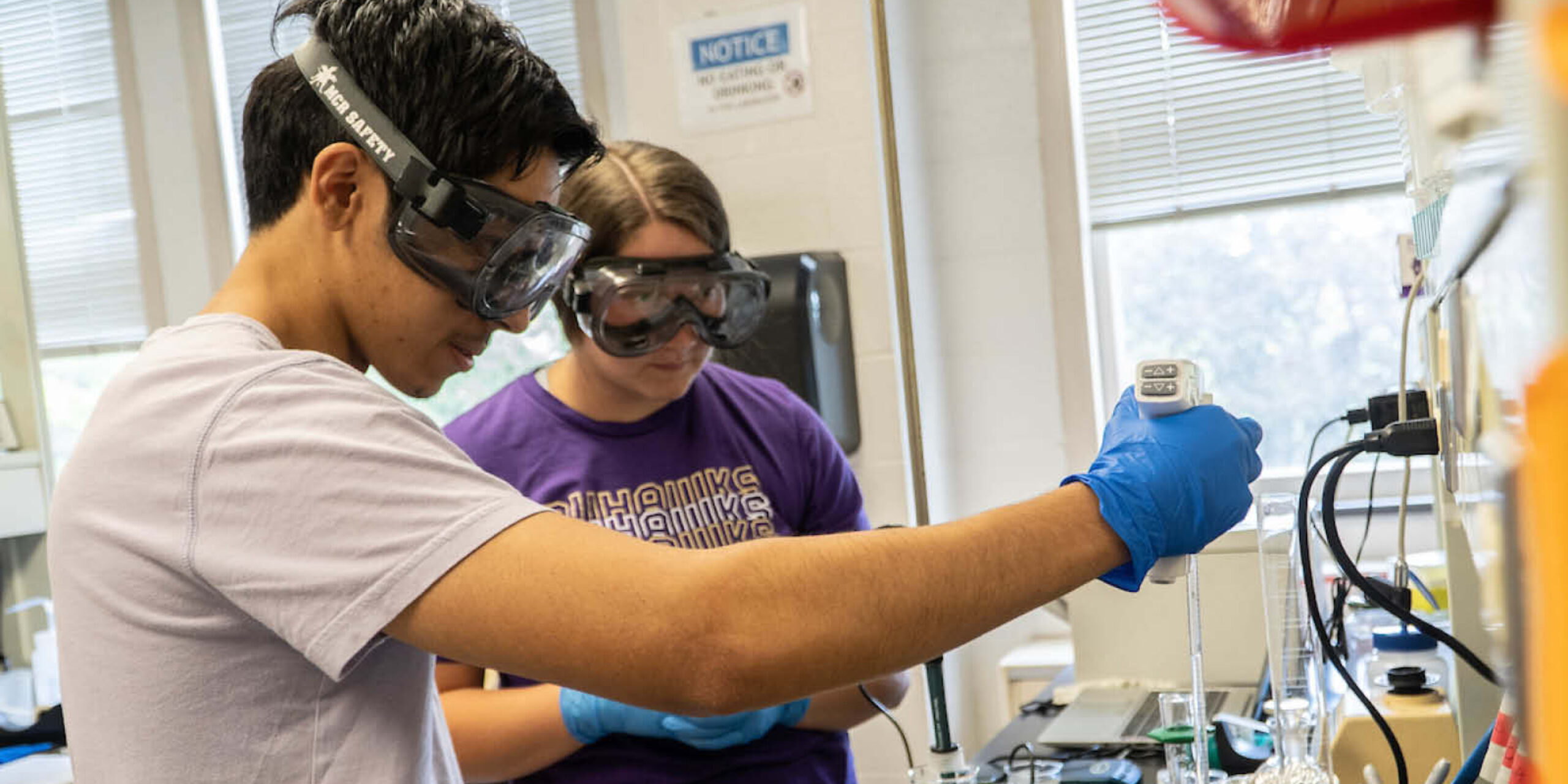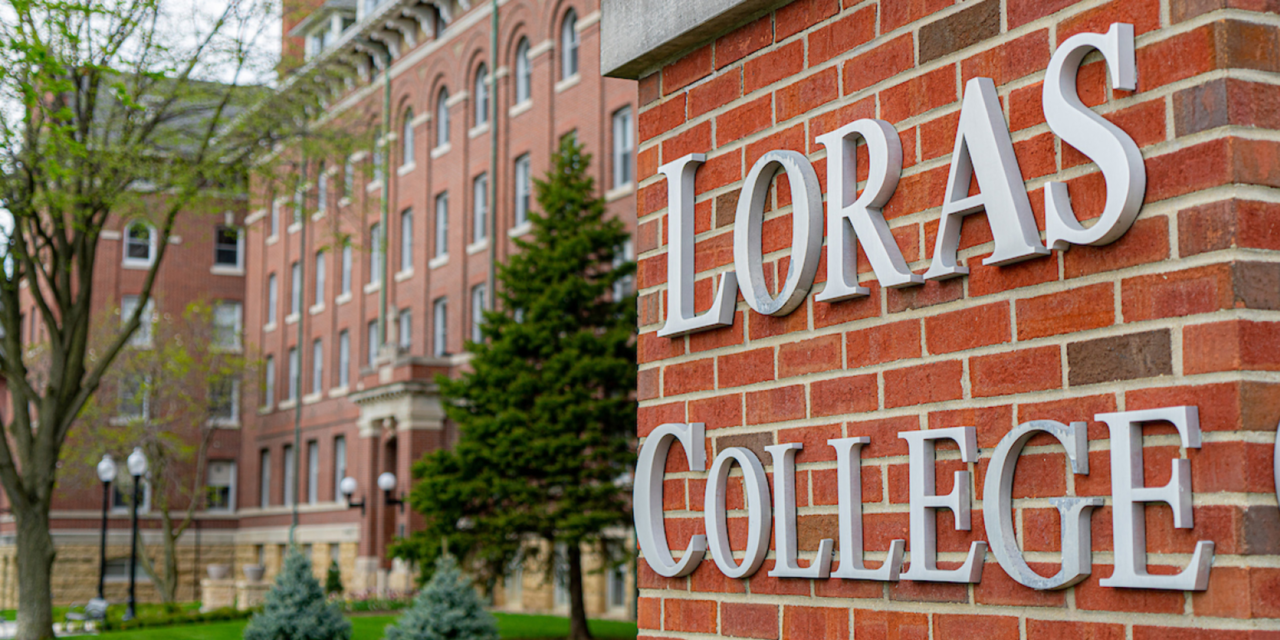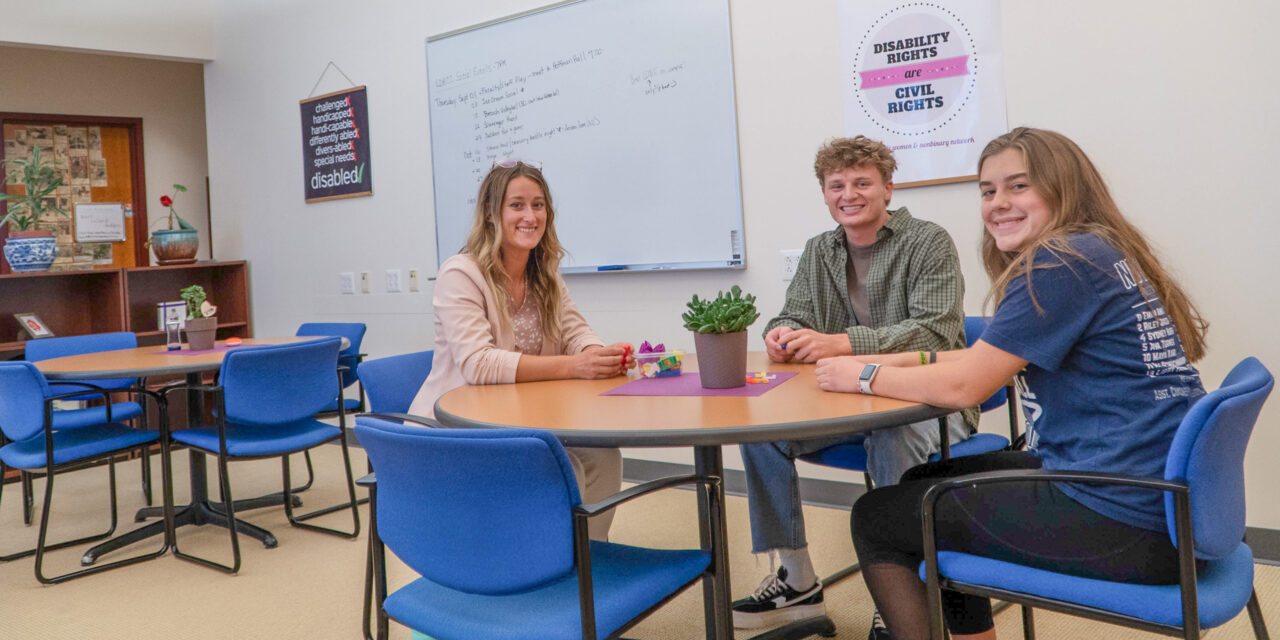The Loras College Biochemistry program has earned full accreditation from the American Society for Biochemistry and Molecular Biology (ASBMB) for the maximum seven-year period.
In approving the accreditation, ASBMB cited the level of access Loras’ provides undergraduates to major research instrumentation, its requirement of a research thesis and its strong assessment strategies.
“Research theses at the undergraduate level are not common but are a proven high impact practice that helps students learn by giving them experiences in critical thinking,” Andrew Kehr, PhD, assistant professor of biochemistry, said. “Every student in the biochemistry program participates in research at this level by their junior year and has the opportunity to do so as early as their first year. ASBMB recognizes this as a notable strength of our program.”
The ASBMB honor is helpful to the program’s undergraduates applying to graduate school. With accreditation, students in the program are eligible to sit for the ASBMB certification exam, which provides them the opportunity to demonstrate their competitiveness with peers from across the nation.
“We are thrilled that there is an organization like the American Society of Biochemistry and Molecular Biology that examined our curriculum, equipment, facilities, faculty, and the opportunities for and successes of our students and recognized what we know to be true about all the science majors at Loras – we offer strong programs with supportive faculty to help our students achieve to their full potential,” Kate Cooper, PhD, biomedical sciences program director, said.
Loras College has offered chemistry since 1893 with research being a significant aspect for more than 100 years. The chemistry program currently comprises three majors (chemistry, biochemistry, and chemistry for secondary education) and is part of the Division of Molecular, Life and Health Sciences, which includes biology and kinesiology along with master’s programs in athletic training and biomedical sciences (shared across all division programs).
ASBMB is an international nonprofit scientific and educational organization. With over 11,000 members, made up of students, researchers, educators, and industry professionals, the ASBMB is one of the largest molecular life science societies in the world. Founded in 1906, the ASBMB’s mission is to advance the science of biochemistry and molecular biology and to promote the understanding of the molecular nature of life processes.




